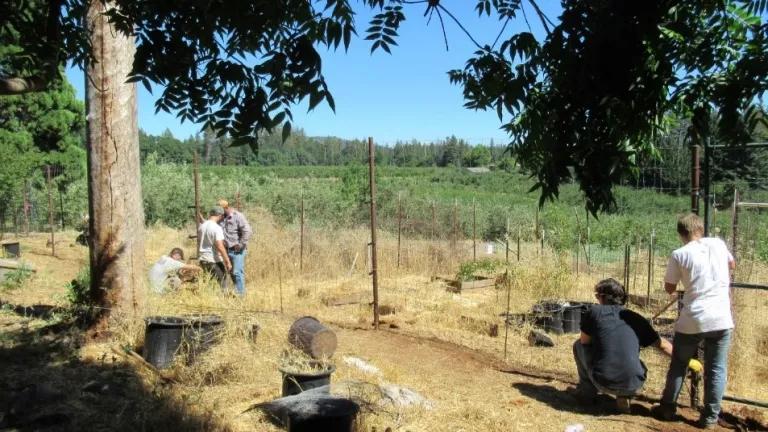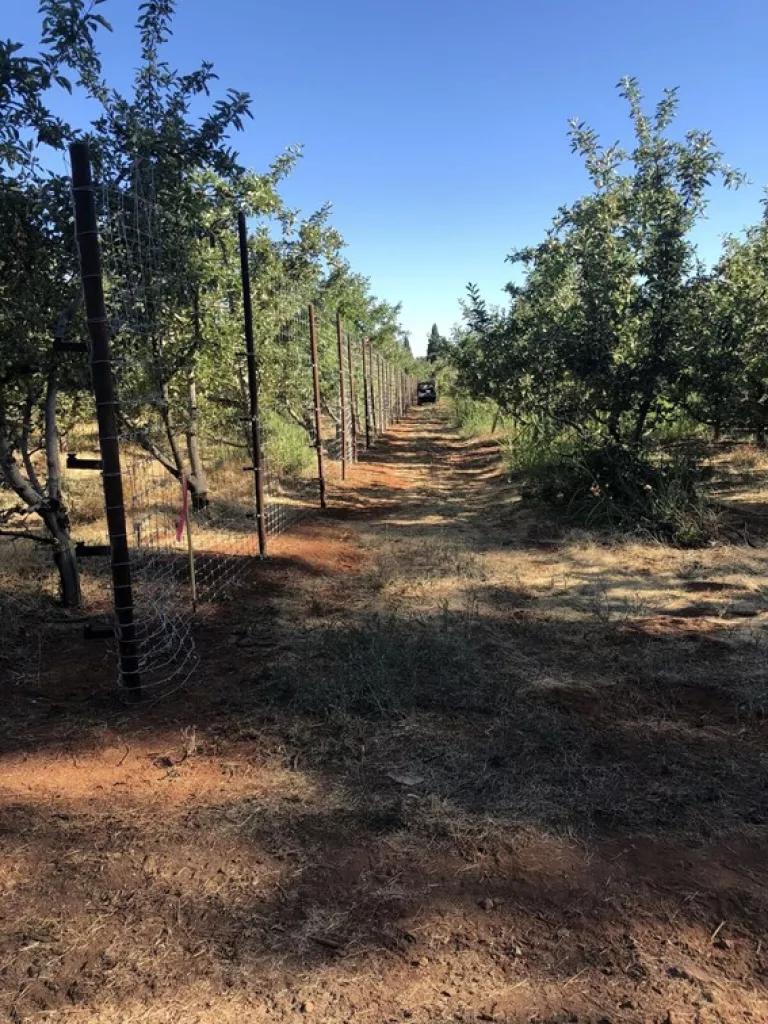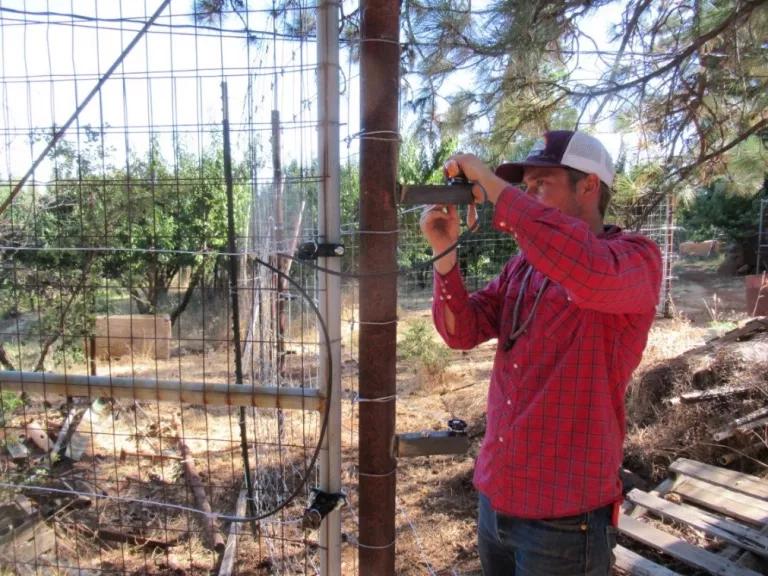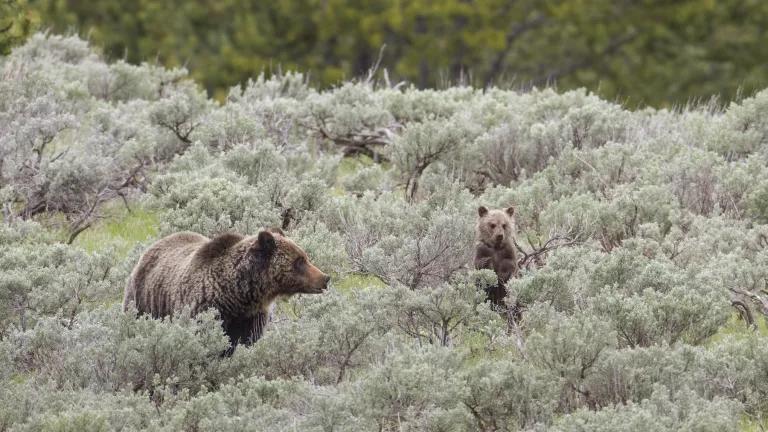
Coauthored by Oliver Wood* and Katie Umekubo
We’re excited to report that NRDC continues to expand its collaborative efforts to promote nonlethal solutions to conflicts with wildlife through partnerships with USDA Wildlife Services, private landowners, and other conservation organizations.
Relying on a model we’ve successfully developed with partners in Montana and other western states, we recently participated in an electric fencing project to keep black bears out of a commercial orchard in Paradise, California – a town in the Sierra Nevada foothills that formally organized 30 years ago.
Last summer, at least a dozen black bears caused over $2.36 million in damage to the orchard owned by the Noble Orchard Company, which is surrounded by the town of Paradise and located near the Plumas National Forest. The bears destroyed 832 trees, clawing at the low-hanging fruit, breaking branches and ripping trees apart while feasting on the season’s stone fruit and apples.
This was the first time that bears caused such widespread damage to Noble Orchards’ family-owned and near century-old operation. As a result, seven bears were trapped onsite last year and later euthanized pursuant to depredation permits issued by the California Department of Fish and Wildlife.
However, lethal removal rarely provides a long-term solution. On the contrary, lethal measures can lead to vicious cycles of damage and death year after year—problems made worse by the longer, hotter, drier summers occurring in California that can reduce natural forage and further stress communities living in close proximity to wildlife. And to little surprise, bears have once again been captured on trail cameras roaming near the orchard this summer.

NRDC worked with Noble Orchards, Defenders of Wildlife, and Wildlife Services to devise a long-term, nonlethal strategy to permanently keep bears out of the orchard. Our collective goal was to proactively discourage bears from this type of interaction and, ultimately, to protect property and prevent bears from being killed. Shock from the electrified fence should deter any future bears who may be tempted by the ripened fruit of the orchard.
After much planning and preparation, representatives from each partner organization arrived in Paradise for a three-day electric fence-building blitz. This fencing project’s common currency was labor and sweat – battling the 100-degree heat to tighten bolts, hang wire, and prepare posts for the interior fence.
Building an electric fence around an orchard is not necessarily rare or unique. What is truly exciting is the creative collaboration between private landowners, a federal agency, and conservation organizations towards a win-win solution—to protect the orchard and bears, while creating a more wildlife-friendly landscape.
We applaud Noble Orchards and Wildlife Services for initiating this collaboration and effort—a first-of-its-kind in the state. We also greatly appreciate all the hard work, organizing and electric fencing expertise provided by Defenders of Wildlife.
Our hope is that projects like this one continue to pave the way for additional partnerships to address human-wildlife conflicts in California and throughout the West.

*Oliver Wood is a 2018 summer legal intern for the NRDC’s Northern Rockies Office in Bozeman, Montana. Pursuing a joint-degree in law and environmental studies at the University of Montana, Oliver is passionate about all forms of conflict resolution, including fence building.




